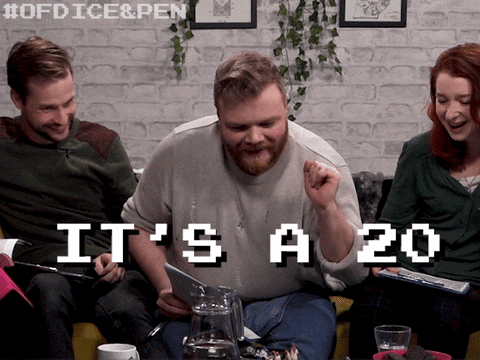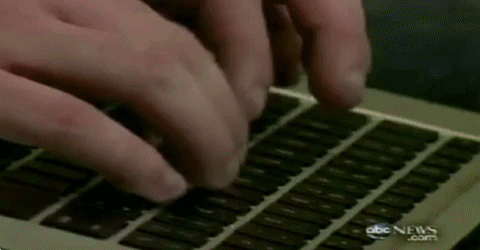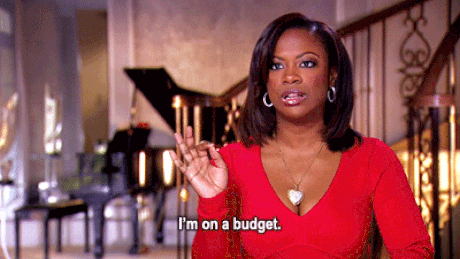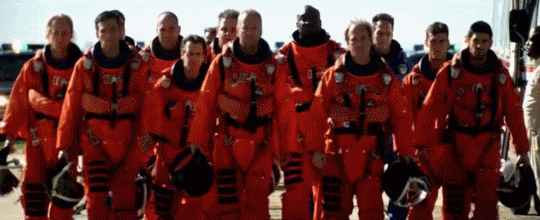Behind-the-Screens With Clark Dever, Senior Product Manager at Techstars
We discuss entrepreneurship, the space race, his favorite subreddits, and more.
Homescreens features behind-the-screens interviews with founders and makers, followed by their favorite apps, audiobooks, and everything in between. Subscribe now and never miss an issue. Sent every Friday morning.
Clark Dever is a staple of the Western New York startup community, an intrepid technologist that dedicates his time to help aspiring entrepreneurs succeed. Clark has been involved in massive social media campaigns like his tour of 30 cities in 31 days, ran AR/VR research and development teams for a government contractor, and even launched and brought-to-market his own VC backed startup, Heads Up Display.
Now, Clark serves as a Senior Product Manager for Techstars, a global seed accelerator that creates opportunities in neglected communities, with a give first mantra. How do you foster startup communities in emerging markets? How do you mentor entrepreneurs in a post-Soviet bloc? These are problems that Clark is tackling in his day-to-day. He’s bringing the love and dedication he has spent so long building in Buffalo, NY to other emerging markets around the world.
What follows is our interview, edited for length and clarity.
Jason: Let's let's get into it! You're a Senior Product Manager at Techstars. Tell me about your role and why you enjoy it?
Clark: I spent the first 18 months of my job at Techstars working on building the startup community in Buffalo, New York, and that was the end of 10 years of volunteering. I‘ve been a serial founder and entrepreneur, and I'd always run events and conferences to build a startup community, so when Techstars came here I was offered the job.
In the midst of a three-year contract, COVID hits. We’re paid for by the state, the state doesn't have any revenue, and they end up canceling the contract. I rolled my D20, got my saving throw, and got picked up as the Product Manager for Ecosystem Development at Techstars.
The first thing I did, was I went back to the customer discovery, the customer research. What I realized was that we were priced high for the market. And when I say the market, I mean, the global market. It's really my personal mission to make high growth, entrepreneurship accessible to founders anywhere in the world, so that they don't have to leave their homes, their family, the people, they love, the communities that they're a part of, to go complete this mission to build a high growth startup. And by doing that, we're increasing wealth equality globally.
So, for the last six months, I've been building a more software-driven approach to what I did on the ground here, that allows us to go sell it to economically developing regions of the world, whether it be South America, Africa, or parts of Asia. Because, again, I just want to create wealth in those places and in those communities. That’s the thing that drives me.
I believe that there are two places that lower-class people can achieve leverage to help drive their economic success: One is housing (these are US-centric), you can get a mortgage. And you can get all the upside on the 80 or 90% of the house you don't own and still sell it and reap those profits. And then the only other place that I'm aware of is venture capital. So if you have a good idea, and you can build it, you can get tons of leverage, ride the wave and then exit. And now you've escaped your social class. And so when I do startup community building, it's really driven out of creating massive economic change in a community.
Jason: That’s incredible and an important mission. Now let's dive into your phone, which is one of the most radical setups that I've seen. It’s so minimal, I love it. Tell us about it and the name of that launcher.
Clark: It's Before Launcher, and you don't have to be rooted or anything. It's not like a new ROM, it's in the Play Store. Also, pay for your software, people! So many software developers don't buy their software, which just drives me nuts. So anyway, I broke them off some cash and got the pro version. I don't know what you get for it, I just did it because I thought it was an awesome product, and I wanted to support it.
I only want to see like seven apps on my home screen. But inevitably, I have like 30 apps that I use on a weekly basis, despite how disciplined I want to be. So where Before Launcher gets it right is, if you swipe right, you still have access to your entire app list without any tomfoolery. And then if you scroll left off of the home screen, it captures all your notifications and filters them, so you don't have to disable your notifications. Like I have my Signal messages as important, so they still come through. But everything else gets caught in this queue. So when I want to check my notifications, I swipe left, and then I have my notification queue and I can clear them all out.
Jason: Since you've gone with this launcher that keeps it minimal and helps you reduce pickup times, have you noticed a reduced amount of time spent on your phone? Are you less anxious?
Clark: I used to do social media for a living. Early in my career, I did 12 Hours in a City; I flew to 30 cities in 31 days, and we did 150 million media impressions. I was on the Howard Stern Show, ABC World News Tonight, all these national publications, and we did it all through Twitter. I had my Blackberry phone and I was tweeting and I was blogging, and that's why they hired me, because I was like the social media guy. And by the time I was done, I was just over social media. When you're immersed in it as a content creator or managing big brands and stuff, you just realize it's just a really toxic environment.
The biggest thing I can tell people is to just get off social media, your anxiety will drop precipitously. The only thing I use a little bit is LinkedIn because there tends to be a lot less toxicity there, but even there, there's a lot of narcissism, which kind of bugs me. Eli Pariser talked about it in like 2008 with his book called The Filter Bubble. He predicted how awful this was gonna be, 12 years ago, and it's been 100% accurate.
Jason: Yeah, it's pretty scary. That's what caused me to do the same, deactivating everything except for what I should probably let go of (Twitter). The election had me holding on a little longer.
Clark: Twitter is great for instant, boots on the ground information about a thing. Like I use Reddit, but I have a very, very curated set of subreddits that I read; they're all technology or design.
Jason: I see you're using BaconReader Premium. What are some of your favorite subreddits?
Clark: Let me pull up my Reddit just so I’m accurate. I would say /r/spaceporn -- I love images of space, like my newsletter last week was all about space. Space is the most humbling thing in my mind. You just realize how insignificant you are, you're a speck on a speck, for a blink in the order of things.
Jason: I had the Pale Blue Dot quote as my wallpaper for many years. It's very humbling, I agree with you 100%.
Clark: There are some startup ones like /r/sweatystartup, which is all about people doing the awful manual labor job startups—like gutter cleaning and pressure washing and things like that. I just love that those people aren't afraid to do the work, you know? This is not like “build something in Node.js.” This is like, “stick your hand in a grease trap.” And one that I'm gonna give a little shout out to is /r/holdmyredbull. I just love quirky human tricks, that's my jam. People who have spent 1000 hours getting good at something that I wouldn't even consider getting good at.
/r/personalfinance is one that everyone should read. If you don't feel like you have a good concept of personal finance, get on that subreddit. They have all these how-to’s that will basically automate you to financial success. That's one of the biggest things that I've always done as a founder and a leader. After Heads Up, I ran an R&D firm for a US Navy defense contractor for five years and grew it to 25 people in Buffalo, and we built augmented reality and virtual reality solutions for aircraft maintenance. I always tried to teach my new hires the basics of personal finance. I would give them I Will Teach You to Be Rich, by Ramit Sethi, and now I point them at the personal finance subreddit. 10 years later in my career, I have people come up to me, and they're like, “Dude, I just got to show you something!” And they'll open up their Vanguard account and be like, “See that? That's because of you, I never would have had this.” And it's like $100,000 in their Vanguard account. It’s so rewarding when I have those people come back and say that some knowledge I gave them helped them to start a life with their family.
Jason: That's very cool, now that they’ve built up some wealth and have a little safety net, they may take that leap into starting their own business, right?
Clark: I always try to have some ambitious goal at whatever job that may be not directly correlated to any kind of KPI with the business. My goal there was to have like a PayPal mafia, where I was going to teach all of my employees how to start and run their own businesses. And so we were just radically transparent about how we operate and how I thought about things.
Jason: I love that mindset. Looking at some of your health-related apps. I see Down Dog, 7 Minute Workout, Strava of course. I know before you've mentioned that you started taking your meetings on walks. When did you start that?
Clark: About a month and a half ago. I actually picked it up from [Jack] Greco. He dictates all of his text messages for the most part. I always consider myself a technologist, but I just never got into dictating into my phone. I was so tired of going from Zoom meeting to Zoom meeting during COVID. So now, if I'm not in a Zoom meeting, I just put on my shoes and go for a walk. And then whatever knowledge work I'm doing, I just dictate into my phone, and then I come back, and I edit.
I'll use Google Keep, which is basically like their Evernote clone, and I just brain dump into it. I'll just dump into the outline using dictation. Then I give myself a page count for those headings and I'll elaborate. Then I take that writing, and I use Hemingway editor. You can dump your writing in there, and it will give you a readability grade and tell you to stop using dollar words when you could use dime words. It says, “Oh, you're using the passive voice here” or, “You're using too many adverbs, cut these out.” We all have these little poor habits, and I use that to tighten up everything. That's usually what I go to market with. So, it's like a three or four-step process, but it keeps all my stuff very tight.
Jason: That’s very systemic and makes you really get your point across. The last thing I wanted to talk about is your podcast app, which is one of your top seven. What are some of your recommendations?
Clark: I really like Invest Like the Best. It’s Patrick O'Shaughnessy, and he has just really high-density speakers. It's mostly startup investors, but they're people that I wouldn't even know to go look for, but they have great ideas.
If you haven't heard it, I just plugged him in my newsletter, but Naval recorded his tweetstorms with deeper notes as a podcast. I'll listen to it like, every six months or once a year, just to like, keep that philosophy in my head.
Noah Kagan's podcast is hit or miss, but sometimes it’s really great. He talks very tactically about building companies, and if you were a wannabe founder, I would definitely have him on your list. He's inspirational and gets you going. He's got a lot of tools— I mean, he's the guy who owns AppSumo. He was a really early employee at Facebook, then I think he was at LinkedIn.
The Space Above Us, I just plugged in my newsletter, is incredible. If you want to know the origins of the space program, and how fucking incredible the Apollo missions were, you should go listen to The Space Above Us. Because they literally got there with slide rules and calculators— 280,000 miles away, strapped a bunch of dudes on top of a missile.
One of my favorite episodes is on the Apollo Soyuz Test Project. Literally considered one of the reasons that the Cold War ended. It was a joint mission to see if we could work with the other superpower and dock in space. They had to time all the missions together— it's fucking beautiful. Each side had to build an adapter so that the two systems could come together and link up, and not depressurize and cause everyone to die.
And in learning about the two different design philosophies, like the difference between how Russians viewed space travel and how Americans view space travel, was just really fascinating. Like Yuri Gagarin, was basically a passenger in a ship. The Apollo astronauts, the Mercury astronauts, the Gemini astronauts, all had control, right? They were pilots. But the Russian’s just let the robots do everything. The cosmonauts themselves were not actually allowed to touch anything. So it was great and amazing, you know, “First person in space,” but not the first person to pilot a vehicle in space.
Jason: That is very interesting! This is great, I'm finding stuff that I want to check out myself. Are there any other apps that we haven’t talked about that you want to dive into?
Clark: Everyone should be using Signal. Free, open-source, vetted end to end encryption for your text messaging, and you can make it your default SMS messenger. If you want to get weirded out, go look up the Utah data center. Basically, there's like room 261 B, and any data that comes in from the world at large, since 911, has been split off into its own and the packets have been duplicated. And a shadow copy of every packet on the internet goes to the Utah data center where it's stored forever. All of your voice and SMS traffic and stuff like that, it all lives there. The more people are using it [Signal], the more secure it is for every user. Even if you don't have anything to hide, you're creating more encrypted traffic out there, so it's less easy to pinpoint dissidents, or journalists, or whatever.
Also, I feel like most people don't actually use YouTube properly. YouTube is such an incredible learning tool. Anything in your life that you want to do better, YouTube has our combined human wisdom. All the experts in the field who put in their 10,000 hours, there's a YouTube version of them.
A cool little app that a lot of people don't know about is the Photo Scan app by Google. If you're walking through grandma's house and you see a picture of her when she's a baby, you can pull it off the wall, click the Photo Scan app, and it turns on your flashlight and then takes a series of pictures and tells you to move your camera. And when you move the camera, then it recombines the image and crops it so that you make a perfect copy. It will get rid of glare and everything.
Jason: Oh wow, that’s handy!
Clark: Oh! I plug this one all the time. Not enough people do it: Geocaching App. If you have kids, it's amazing. It's an amazing reason to go outside. Geocaching has been around for like 20 years. Basically, people plot GPS coordinates, and there's a treasure chest that's hidden there. Most of the time it’s an ammo can out in the woods. So, you bring something to put in it, and your kids can take something out of it, and it's just a magical experience. I've gone to so many interesting, interesting points of interest in my town that I have driven past 100 times before and never thought to stop because there was a geocache there.
Jason: That sounds like fun, I’ve never done that before! Maybe when my son gets older we’ll try it out. Clark, this has been great. I appreciate you joining me!
Clark: Awesome, man. I appreciate it. Thank you for your time, dude. And thanks for featuring me. Talk to you later
Endnote
Thanks for reading my interview with Clark, connect with him on LinkedIn here. If you enjoyed this interview, I’d love it if you subscribed and shared it with a friend! Would like to be featured in a future issue? Submit a request at www.Homescreens.co
👉 Lastly, Clark writes a weekly newsletter called FORWARD, a weekly dose of curated content. It’s a brief but intriguing collection of music, art, business, history, and philosophy to broaden your horizons. Subscribe to it for free here. You’ll love it.
App & Media Recap
📲 Before Launcher - The average person loses two hours a day distracted by their phone. Own your time with Before Launcher.
🧘 Down Dog - Select your time, level, focus, voice, and music, and Down Dog creates a unique, personalized yoga practice every time.
🥓 BaconReader - A Tasty Reddit app.
🎙 Invest Like the Best - Exploring the ideas, methods, and stories of people that will help you better invest your time and money.
🎙 Noah Kagan Presents - The #1 podcast for entrepreneurs. Learn proven strategies to start and grow a business, improve productivity, and live a happier life. Hear from top performers in all industries.
🚀 The Space Above Us - The Space Above Us is a podcast about the history of NASA human spaceflight. It covers each mission from the first flight of Project Mercury on Freedom 7 to the last flight of the Space Shuttle on STS-135, and every mission in between.
💬 Signal - Say "hello" to a different messaging experience. An unexpected focus on privacy, combined with all of the features you expect.
🖼 PhotoScan by Google - PhotoScan is a new scanner app from Google Photos that lets you scan and save your favorite printed photos using your phone’s camera.
🗺 Geocaching - Join the world's largest treasure hunt.
📖 I Will Teach You to Be Rich, by Ramit Sethi - Buy as many lattes as you want. Choose the right accounts and investments so your money grows for you—automatically. Best of all, spend guilt-free on the things you love.
✍️ Hemingway Editor - Hemingway Editor is a simple word processor and proofreading tool designed for writers.








